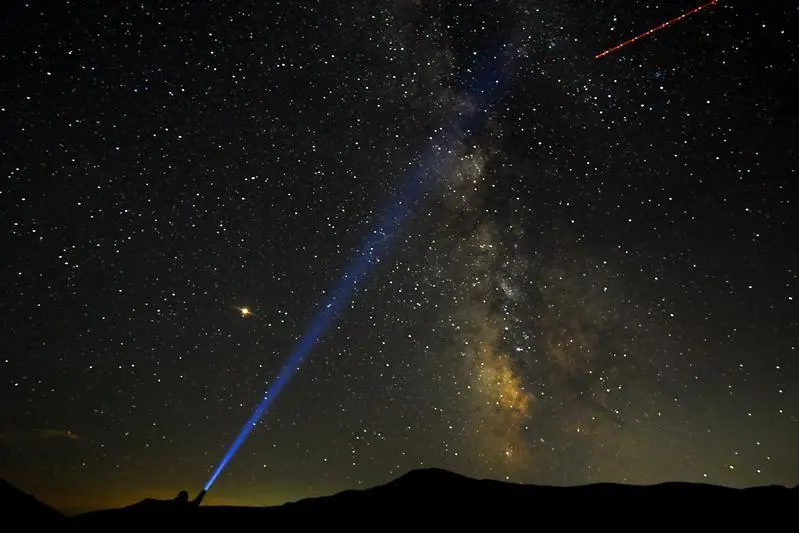PHOTO
The most-awaited meteor shower of the year dazzled the UAE skies this weekend, with more than 120 meteors shooting across per hour.
The Geminids meteor shower was visible to the naked eye. Last year, a 'super moon' made it difficult to see the stunning celestial spectacle.
Some 300 UAE residents gathered in Al Qudra desert late on Friday night to witness the display. The 'viewing event' was organised by Dubai Astronomy Group (DAG).
With the advanced telescopes on-site, the stargazers also saw the 'Christmas comet' in the sky. It is the brightest comet of the year, which won't be this close to Earth for the next 20 years. The onlookers also observed Mars and the Orion Nebula, which is more than 1,340 light years away from our planet.
Hamad Al Obaid, one of the viewers at the event, said: "I've seen meteor showers before, but this one was spectacular. I think I saw at least 50 shooting stars in just two hours."
Another enthusiast, Marianna Khoury, said: "It's so amazing, what you can see when you leave behind the city lights. I think everyone should come to see such an amazing display at least a few times in their lives - it can help them de-stress."
Hasan Al Hariri, CEO of DAG, told Khaleej Times: "The Geminids meteor shower is nearly 200 years old.
The first recorded observation was in 1833 from a riverboat on the Mississippi River - and it is still going strong. In fact, it's growing stronger. That's because Jupiter's gravity has tugged the stream of particles from the shower's asteroid 3200 Phaethon closer to Earth over the centuries," he said.
Usually, meteors are objects that break off from comets and astronomers have dubbed them "dirty snowballs". However, the Geminids are different because they come from the 32000 Phaethon asteroid.
Speaking about the meteor shower viewing event held by DAG, Al Hariri said: "The expectations of the public were met. The number of meteorites seen were extraordinary. It was amazing to see the shooting stars. The crowd responded beautifully. The people stayed till the end of the event. We had interesting sessions and the shower evoked huge participation."
The next celestial display to light up the UAE skies will be the Quadrantid meteor shower next year, which usually peaks from December 3 to December 4.
Copyright © 2018 Khaleej Times. All Rights Reserved. Provided by SyndiGate Media Inc. (Syndigate.info).





















